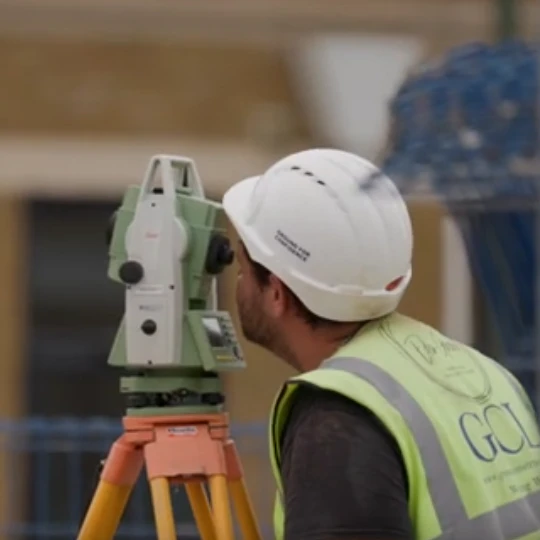What does a civil engineer do?
At its core, the job is to plan, coordinate and oversee construction projects to ensure they are completed safely, on time and on budget. These professionals work on a variety of projects, from roads and bridges to commercial and residential buildings, ensuring they meet regulatory standards and are completed on time and on budget.
Required skills
Several skills are required to be successful in this dynamic field. A solid foundation in project management is critical, as are excellent problem-solving skills. Effective communication skills are essential for working with diverse teams, clients and regulators. Attention to detail, a deep understanding of construction processes and the ability to adapt to new technologies are also highly valued.

Qualifications
Getting a foot in the door typically requires a minimum of an NVQ Level 2 qualification and holding a blue CSCS card. The NVQ Level 2 certification ensures a foundational understanding of construction principles, while the blue CSCS card signifies competence in health and safety – a non-negotiable in the industry.
Benefits
There are many benefits to working as a civil engineer and supervising construction work. Employees often feel a sense of accomplishment knowing that they are contributing to the creation of important infrastructure. The field offers diverse learning and development opportunities and the chance to work on projects that can become landmarks. The demand for skilled professionals in the UK remains high and offers a stable career path.
Challenges
However, the profession is not without its challenges. Construction can be demanding, with tight deadlines, budget constraints and unpredictable weather conditions. Patience, resilience and the ability to adapt to unforeseen challenges are important qualities to get through the tougher times.
Career path and progression
As you gain experience, exciting opportunities for advancement will open up. You can start as a trainee or assistant and work your way up the career ladder to site manager, project manager or even state-certified civil engineer. The opportunities are as varied as the projects you work on.
Statistics
Civil Engineers in the UK* – Prognosis
Average Annual Increase
ARR**
SOURCE: CITB “Labour Market Intelligence Report (2024 – 2028)”
* These prognosis calculations assume constant ARR and growth rate without significant external disruptions.
** ARR – Annual Recruitment Requirement is a metric used to estimate the number of new workers needed annually to meet labour market demands in a specific industry, region, or occupation.
How much could you earn as a civil engineer
The earning potential in this field is substantial. Entry-level positions might start at around £21,000 to £26,500 per year, with experienced professionals earning between £43,600 and £74,000. Senior roles, such as chartered civil engineers with significant experience can earn well into the six figures.
*Information sourced from reputable recruitment sites and agencies, reflecting the latest job market insights and trends. Figures can vary based on factors such as specific job requirements, individual qualifications, and regional economic conditions. Additionally, self-employed professionals should account for expenses such as tools, materials, insurance, and transportation when calculating their net earnings.
Typical hours per week
Standard work hours per week
(Employed)
Working hours per week with overtime
(Employed and Self-employed)
The construction world is known for its long hours, and construction operations and civil engineering professionals are no exception. A typical workweek of a civil engineer in construction ranges from 40 to 50 hours, depending on project demands. Flexibility is key, as you might find yourself working evenings or weekends to meet deadlines.
Conclusion
In conclusion, a career in construction operations and civil engineering offers a challenging but rewarding role. If you have a passion for shaping the world around you, this field offers you the opportunity to make a lasting impact on the landscapes we live in. So put on your hard hat, grab the blueprints and get ready to shape the future.
Subtitle for This Block
Title for This Block
Text for This Block

